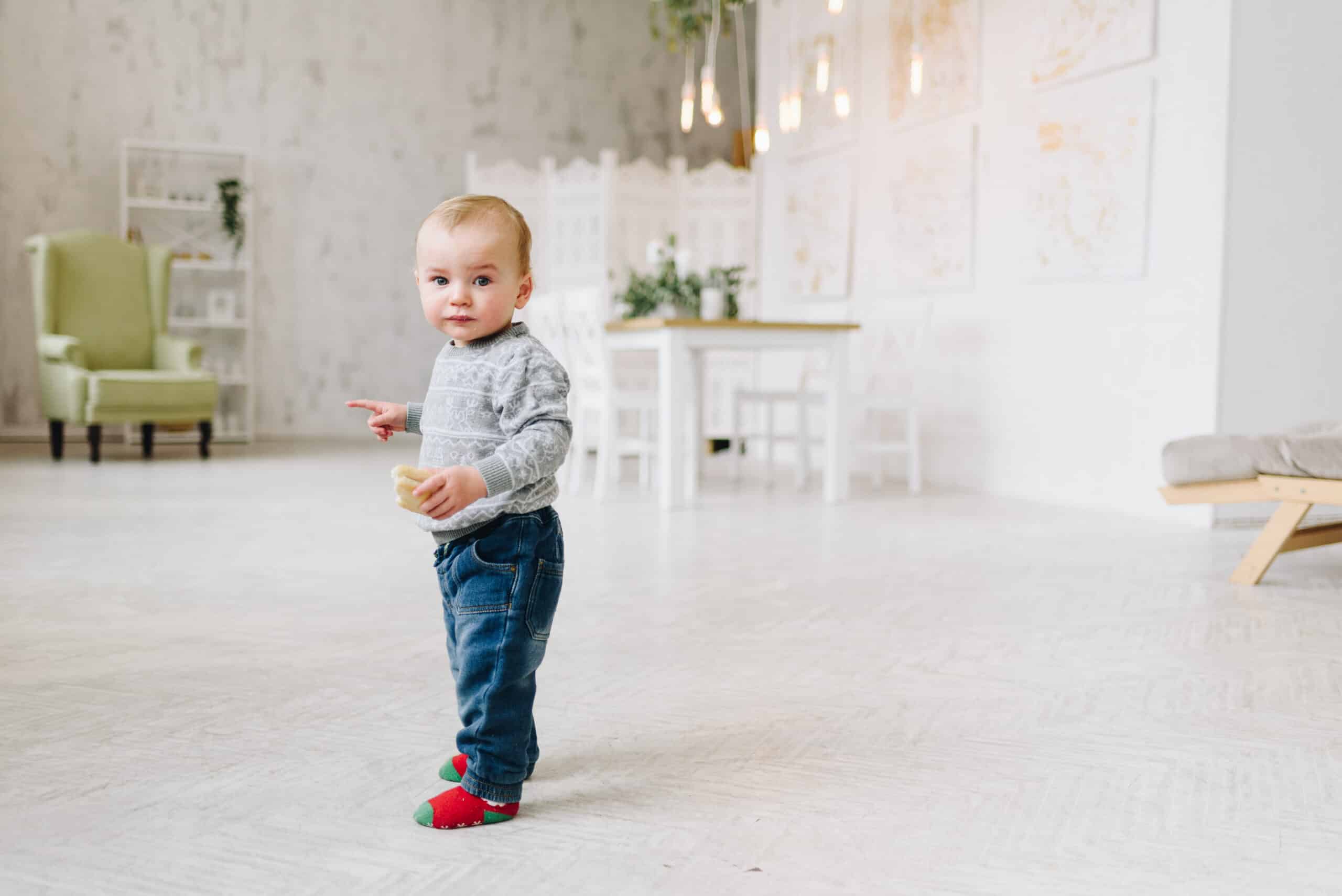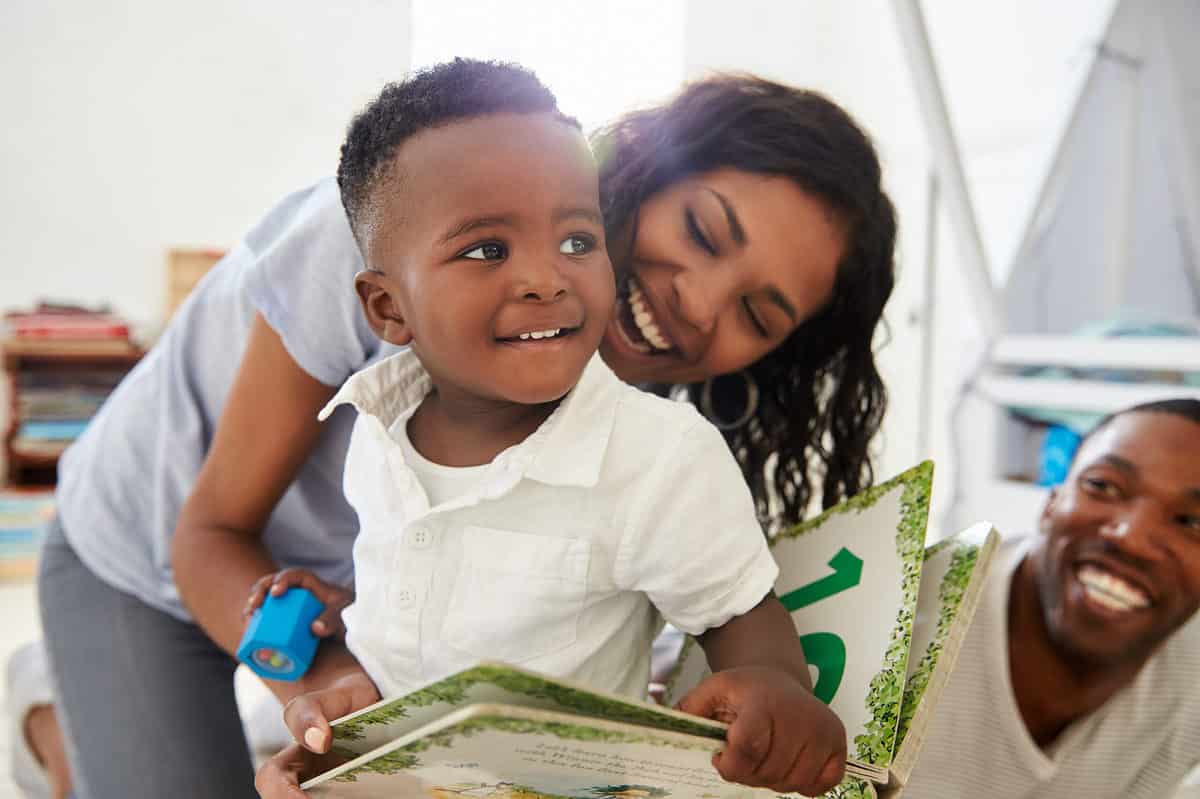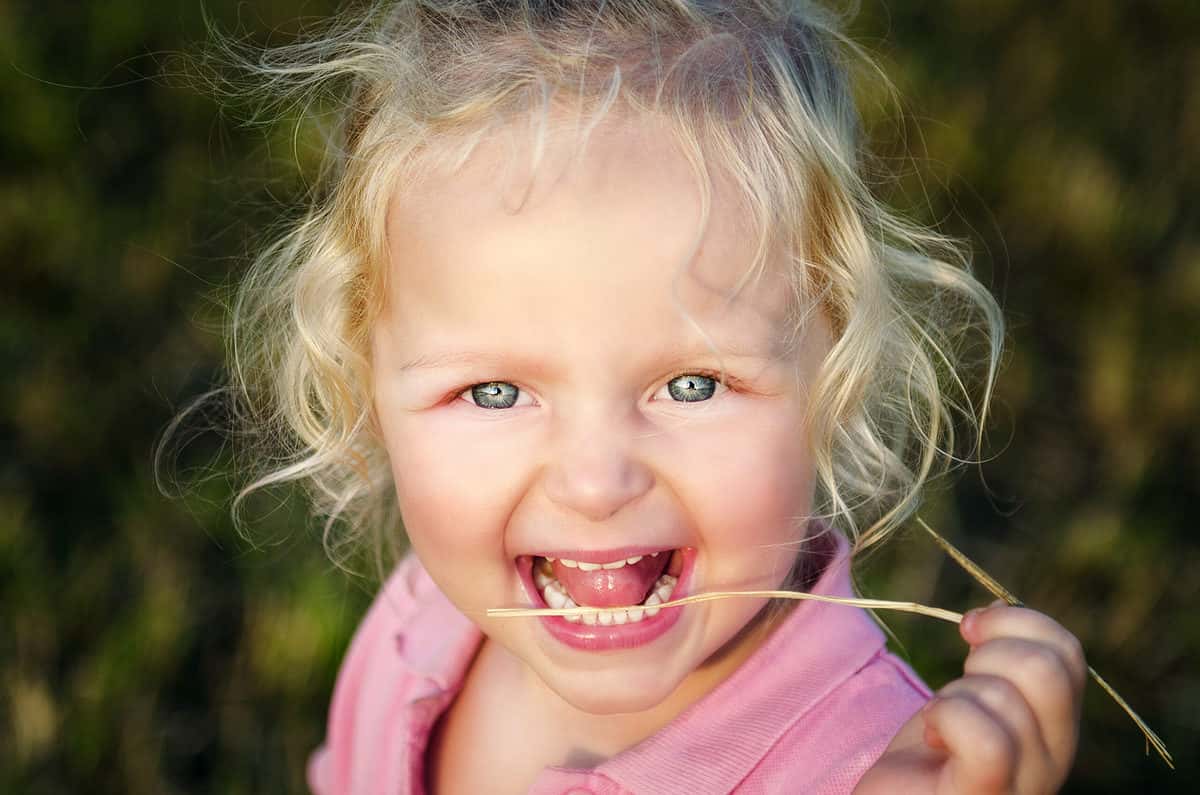

The Developmental Milestones at 18 Months of Age
At 18 months, your child will be growing like a weed while developing their own personality. Although there will be tantrums from time to time, parents are sure to experience plenty of joy as their little boy or girl grows into their own and starts putting together sentences. There is a lot to look forward to during this amazing time, so let’s look at the developmental milestones at 18 months of age.
Key Points of 18-month Development
- Around this point more emotional understanding and displays and you find temper tantrums to be more common.
- Social skills will be more developed and your child might find they want to interact more frequently with people and toddlers.
- Kids develop at slightly different rates so if they are not hitting all of these milestones it's not necessarily cause for concern. However, if they miss several consult your doctor.
18-Month Emotional Development

©Monkey Business Images/Shutterstock.com
This is a very exciting time because your child will really start to develop a unique personality, which will manifest itself in several different ways. They might be incredibly independent and you will have to keep a close eye on them to prevent any messy shenanigans. Other kids might be a little more shy or reserved and will need some additional help with socializing.
Favoring One Parent Or Another
At this age, you will probably notice that your child switches between having a favorite parent at the drop of a hat. Don’t take offense. It is natural. There is no real scientific reason between this change or heart, it is just how life will be at 18 months of age. Avoid the temptation to regain your child’s favor by trying to bribe them with presents, as that can set a bad precedent.
Making Friends
At 18 months, your walking and talking child will become more interested in making friends with the other children he/she meets. Although they won’t create full-fledged friendships, your child will start to be curious about others. They may even poke, push, or hit a new “friend,” but that isn’t necessarily a bad thing. It’s just their way of learning how friendship works. Make it a point to put your child in more social situations at this age so they can continue to develop their social skills.
Asking to be Carried
At this age, many children are excited about walking, and they will walk around to exhaustion every day. However, other children may want to be carried, especially in public, where they may feel more vulnerable or simply crave affection. Oblige when possible and carry them around (after all, eventually, they won’t want to be carried ever again), and if you get tired, try walking with them while holding their hand to help them to feel more secure.
18-Month Physical and Mental Development
An 18-month-old child will experience many different spurts in their physical and mental development. However, you may also have some challenges due to the potential for temper tantrums. This doesn't necessarily mean that anything is wrong, but instead, your child is exploring the complex emotion of frustration, not getting their way, or some other new emotion. It can be trying for a parent but it's important to keep your cool as much as possible.
Physical Development
This is another one of those months where your child will likely experience a growth spurt, and they will become more active than ever before. Though every child is different, it is not unlikely that you will see your child running wherever they can while climbing on the furniture and possibly even throwing a ball underhand.
Mental Development
On the mental side, your child may even be able to keep the memory of an object in their head even after the item is out of sight. Use this opportunity to play a lot of hide-and-seek. The developmental milestones at 18 months of age also include an improvement in their problem-solving skills. A couple of months ago, your child would just empty a drawer and throw everything on the ground. Now, you may see them try to figure out how to put everything back.
You will notice that your child will busy themselves with many other fun activities, including:
- Scribbling with crayons
- Turning knobs on cabinets and doors
- Finger painting
- Pushing buttons on the TV, phone, etc.
- Memory
It is also around this time that your child may start to boost their memory skills and think about things that aren’t in front of them. For instance, your child may know that cookies are in the pantry and that toys are in the chest although they can’t see them. Some kids will not develop these skills until 24 months, so don’t be concerned if they don’t see it yet. You can encourage the memory skills of your 18-month-old by separating their toys by color and then giving them their own toy to test if they can tell which pile it belongs to.
Potential for Temper Tantrums
Although they haven’t reached the “terrible two’s” yet, your child’s mental development may lead to the occasional temper tantrum or screaming fit.
In most cases, these temper tantrums will occur almost out of nowhere. It may be that his milk is in the wrong cup, she wants to go barefoot instead of wearing her boots, or anything in between. These tantrums may also occur out of frustration with their inability to complete a certain task, or they may just be tired or hungry.
As a parent, you still need to get things done without a child screaming in your ear. So, although these fits will mostly be random, you can try to get ahead of the game by waking up earlier than your child, so you can get things done around the house, run errands during the part of the day when your child is typically calm, or anything else you can think of.
You will also find that your 18-month-old finds it hard to share items with others as they believe that everything is “mine.” They may even believe items like car keys and a random pair of shoes belong to them. As parents, you can try to improve this behavior by praising them when they do share an item with a sibling and pointing out when characters share items on TV.
Also, while it may be difficult, try to avoid scolding your child too much when they don’t share because, sometimes, acknowledging that sharing is hard may help them to come along. Just remember that every child has temper tantrums and refuses to share during this age, so they will grow out of it.
18-Month Vocabulary and Communication

©Marina Markova/Shutterstock.com
Parents will also see that their child’s vocabulary will grow by leaps and bounds starting in the eighteenth month. While there will still be plenty of babbling, your child will start to realize that the objects they see have names associated with them. You will likely hear your child asking, “what’s that” more often and then trying to repeat the word after they learn it.
One of the most exciting developmental milestones at 18 months of age is your child’s growing vocabulary. Most babies will be able to say a handful of words at this age, with common words including “mama,” “dada,” “bye-bye,” “car,” “my,” and “oh,” among others. You may also hear them start to say partial sentences, like “all gone” and “me up.” You will also see improvement in their tone, so even though they are saying fewer words, you may still understand what they mean. As an example, if they say the word “cookie,” you will know whether they mean that they like cookies or if they want one.
There are a lot of ways to help increase their vocabulary but reading to them, audiobooks, and being as patient as possible with their repeated questions.
Pay Close Attention To Their Speaking Abilities
With all of that said, not every child will do a lot of talking. Some children may even be limited to only saying “mama” and “dada,” and a few other ramblings, and that is not always a cause for concern. However, if your child doesn’t grow their vocabulary to about 10 or more words in the upcoming months, then you may want to contact the doctor.
Also, don’t be too concerned about grammar and mistakes when your child speaks at this point. Instead, continue to encourage them to continue to talk. If you want to teach them how to say something correctly, then repeat the word back to them the right way. You can encourage your kids to say more words by listening to kids' songs.
What Parents Should Watch Out for at 18 Months
While every child is different and many develop at their own pace, there are certain behaviors that are expected at this age. If your child isn’t performing the actions listed below during this month or shortly thereafter, then consider speaking to the doctor.
- Does not point
- Can’t walk
- Isn’t learning new words
- Can’t already say at least six words
- Does not try to copy others
- Doesn’t notice when a parent leaves or returns
- Loses skills they once had
In conclusion, make sure to treasure these moments, as your child will only continue to evolve and grow more talented as time goes on. Enjoy the developmental milestones at 18 months of age and watch your child become their own little person.